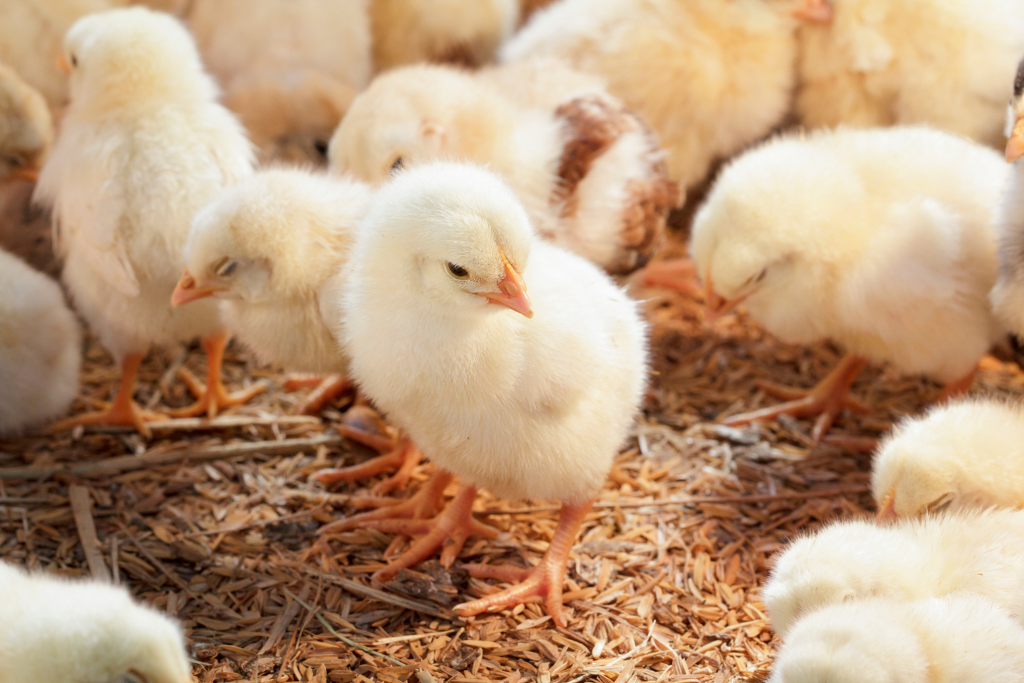
Benefits of Crate Training Your Dog
30 April 2024 +Crate training is a frequently overlooked yet highly beneficial training method when bringing a new dog home. Puppies, adults, and senior dogs can all benefit ...

Getting ready for the arrival of baby chicks can be an exciting but also an overwhelming time. Making sure you have everything prepared before welcoming your new flock is beneficial in ensuring your chicks get the best start in life. From setting up your brooder to transporting your birds, this article will break down all the basics to help you feel confident in preparing to bring your chick’s home.
Brooder Options:
The setup required for housing your chicks can be simple. When deciding what to use as a brooder (the space in which your chicks will live), you’ll want to choose something sturdy, large enough to comfortably house your chicks, and, ideally, inexpensive. Because of how rapidly baby chicks grow, they need to be moved into larger housing units as they get bigger. A strong cardboard box, Rubbermaid tote, or kiddie pool are all suitable options if they provide enough space. If you have pets or small children in your household, consider covering your brooder with hardware cloth or chicken wire to prevent accidents and keep chicks from escaping as they grow larger.
Bedding Material:
The bedding you use for your baby chicks should be absorbent, easy for them to walk on, and not slippery. Paper towels or puppy training pads are great options to use for the first 5-7 days after getting your chicks as they meet all these requirements. These options also make it easy to monitor if your chicks are eating since the smooth, white surface makes droppings visible. Bedding should be changed frequently to ensure your chick’s environment stays clean and dry.
Heat Source:
Since baby chicks do not yet have their feathers, they cannot regulate their own temperature. A constant heat source must be provided for them. The most used heat source for baby chicks is a heat lamp with a 250-watt infrared heat bulb. This should be secured over top of their brooder box; however, some alternate heating options include radiant heat plates or simply keeping the brooder in a small room with the heat turned up enough to keep them warm.
Once you have prepared a housing unit for your chicks to be placed in upon their arrival, it is time to prepare their food and water. Baby chicks require access to food and fresh water at all times and will likely be very thirsty following their journey to their new home. The feeder and waterer that you choose for your chicks should be small enough to fit in your brooder without overcrowding and easy for your chicks to access. It is important that you change your chick’s water several times per day to ensure that it stays clean. Spot clean or add fresh feed as needed if contamination occurs. Use caution if using an open water source for your chicks, as they are at risk of accidental drowning and contracting diseases related to fecal contamination.
*Pro Tip – Adding clean marbles or rocks into the bottom of the chick’s water dish and elevating it slightly from the ground while they are young can help prevent accidents and contamination.
Food Options:
We pride ourselves on providing feed to help your chicks thrive from day one. Chickens require different feed formulations throughout their life stages, and when it comes to baby chicks, we carry two options:
*Note – If raising meat birds, switch to unmedicated feed at four weeks old to ensure no medication is present when they are processed.
Now that everything is ready for your chick’s arrival home, it’s time to pick them up. When bringing chicks home, you must have a secure way to transport them. Ensuring they have a smooth, non-stressful ride home will help your chicks transition quickly into their brooder environment.
An ideal container to bring your chicks home in should meet the following criteria:
You should now be well on your way to becoming an expert in caring for baby chicks, and before long, you will be reaping the rewards of all your hard work! Visit one of our experts in-store to learn more about preparing for chicks, and be sure to check out our wide range of products and feed to find everything you need to get started!
Sources:
https://www.thehappychickencoop.com/how-to-feed-meat-chickens/
https://oakwayfarmandgarden.com/page/page-2/?permalink=how-to-keep-baby-chicks-warm
https://backyardpoultry.iamcountryside.com/feed-health/how-long-do-chicks-need-a-heat-lamp/
https://the-chicken-chick.com/baby-chick-basics-what-you-need-to-know/
Store Manager, Saint John NB